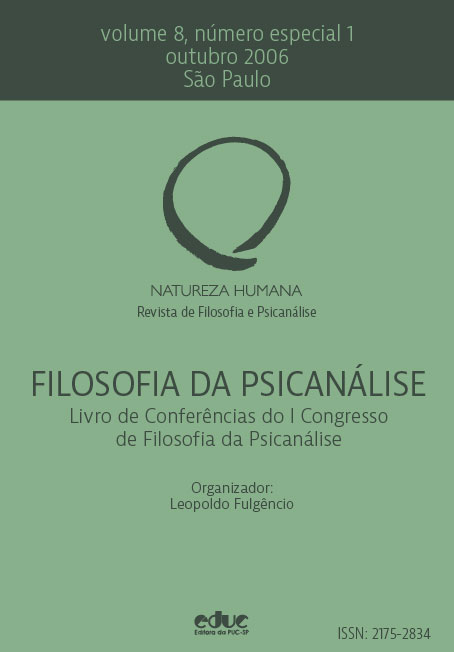Nirvana principle: a sign of a change of direction in Freud's journey?
DOI:
https://doi.org/10.59539/2175-2834-v8nespecial1-680Keywords:
philosophy and metapsychology; aleatory materialism and metapsychology; transference; repetition; death instincts; Nirvana principle; epistemological history of the psychoanalysis.Abstract
Freud's displacement from the Principle of Inertia (1895) to the Principle of Constance (1920) study is well known. However, it went almost unnoticed the oscillation between the latter and the Nirvana Principle, correlative to the destabilizing impact caused by the surge of the death pulsion concept. This oscillation between constance and nirvana is the symptom of the existing tension between the initial and disputable "physicalist" biology and another ground (the mysterious Orient and its culture). The analysis of this symptom can help us to move forward to an almost unexplored aspect in Freud's itinerary: its obvious transference to the optimist Romain Rolland, subject supposed to know of this other ground in which we can find the roots of che deliverance connoted by the Nirvana.Downloads
Published
2024-05-17 — Updated on 2006-05-17
How to Cite
Evangelista, W. J. (2006). Nirvana principle: a sign of a change of direction in Freud’s journey?. Human Nature - International Philosophy and Psychology Review, 8(especial1), 195–222. https://doi.org/10.59539/2175-2834-v8nespecial1-680
Issue
Section
Artigos








